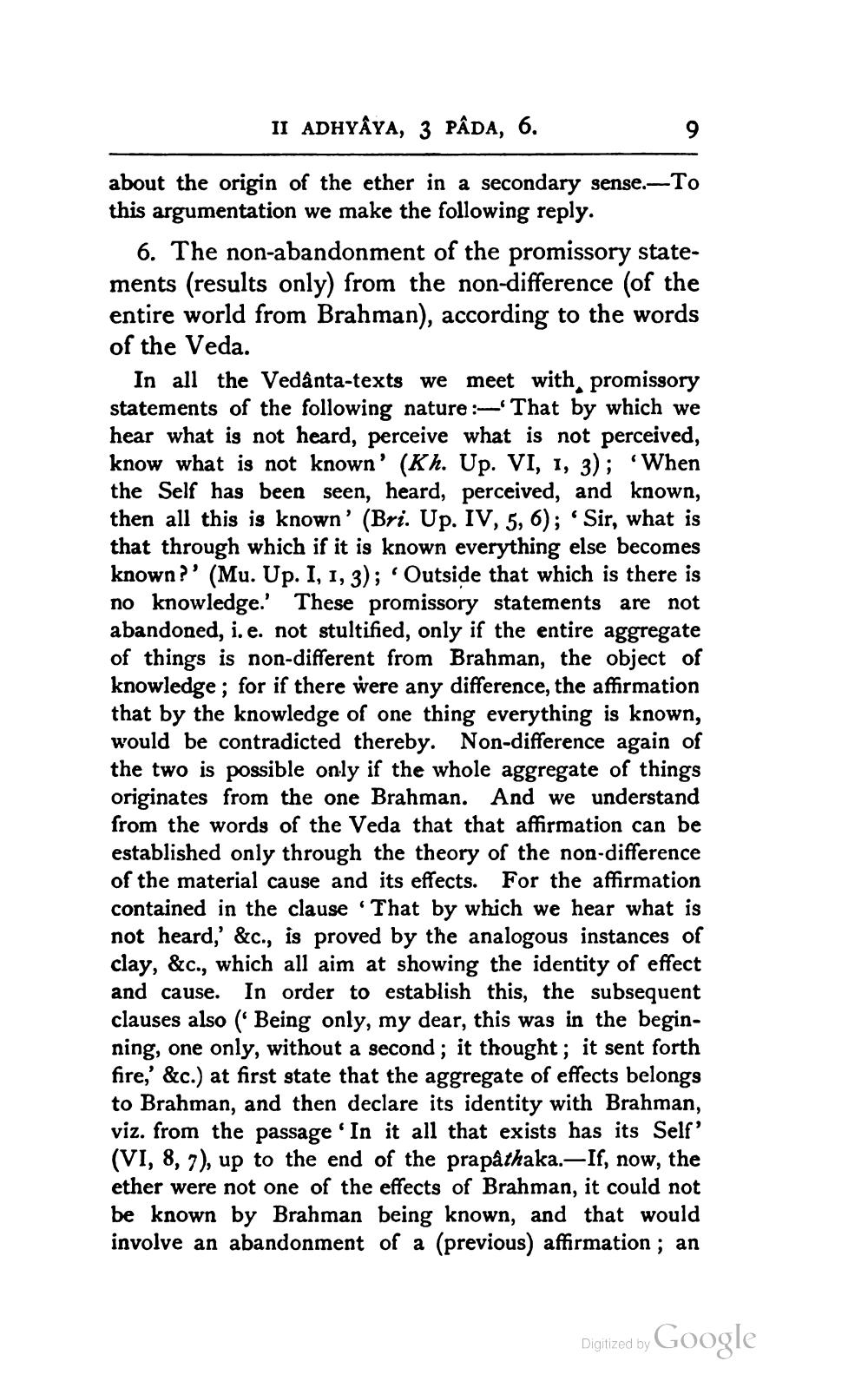________________
II ADHYÂYA, 3 PÂDA, 6.
about the origin of the ether in a secondary sense. To this argumentation we make the following reply.
6. The non-abandonment of the promissory statements (results only) from the non-difference (of the entire world from Brahman), according to the words of the Veda.
In all the Vedanta-texts we meet with promissory statements of the following nature:-That by which we hear what is not heard, perceive what is not perceived, know what is not known' (Kh. Up. VI, 1, 3); When the Self has been seen, heard, perceived, and known, then all this is known' (Bri. Up. IV, 5, 6); “Sir, what is that through which if it is known everything else becomes known?' (Mu. Up. I, 1, 3); Outside that which is there is no knowledge. These promissory statements are not abandoned, i.e. not stultified, only if the entire aggregate of things is non-different from Brahman, the object of knowledge ; for if there were any difference, the affirmation that by the knowledge of one thing everything is known, would be contradicted thereby. Non-difference again of the two is possible only if the whole aggregate of things originates from the one Brahman. And we understand from the words of the Veda that that affirmation can be established only through the theory of the non-difference of the material cause and its effects. For the affirmation contained in the clause 'That by which we hear what is not heard,' &c., is proved by the analogous instances of clay, &c., which all aim at showing the identity of effect and cause. In order to establish this, the subsequent clauses also ( Being only, my dear, this was in the beginning, one only, without a second; it thought; it sent forth fire,' &c.) at first state that the aggregate of effects belongs to Brahman, and then declare its identity with Brahman, viz. from the passage 'In it all that exists has its Self' (VI, 8, 7), up to the end of the prapathaka.-If, now, the ether were not one of the effects of Brahman, it could not be known by Brahman being known, and that would involve an abandonment of a (previous) affirmation ; an
Digitized by
Digilzed by Google




